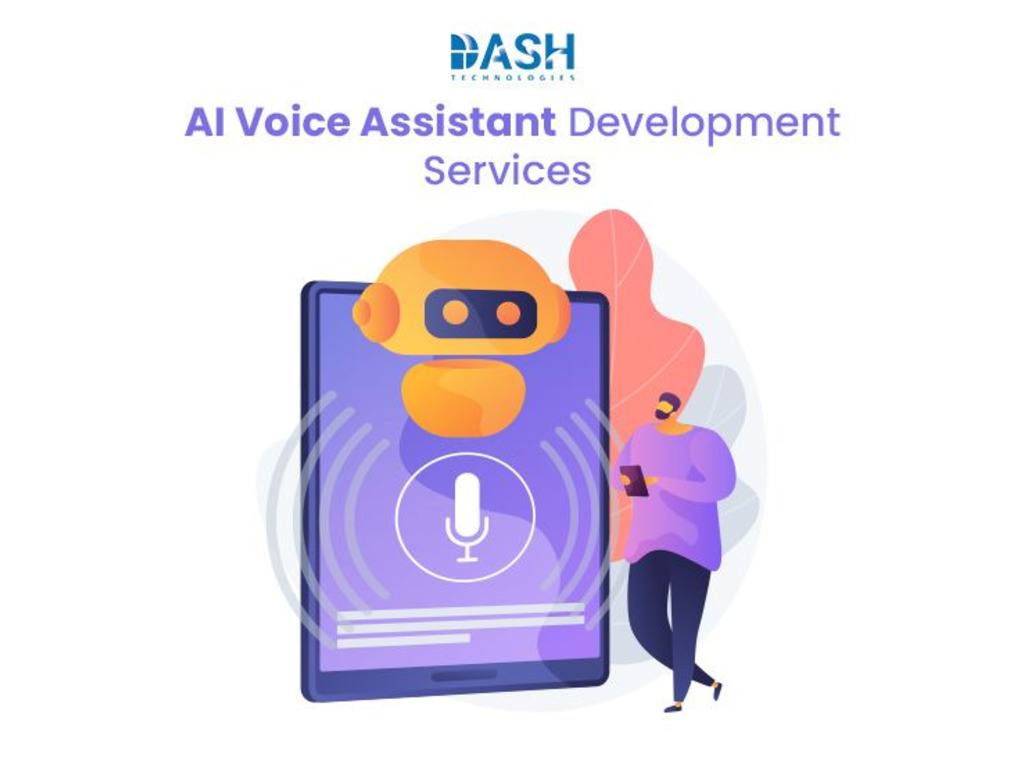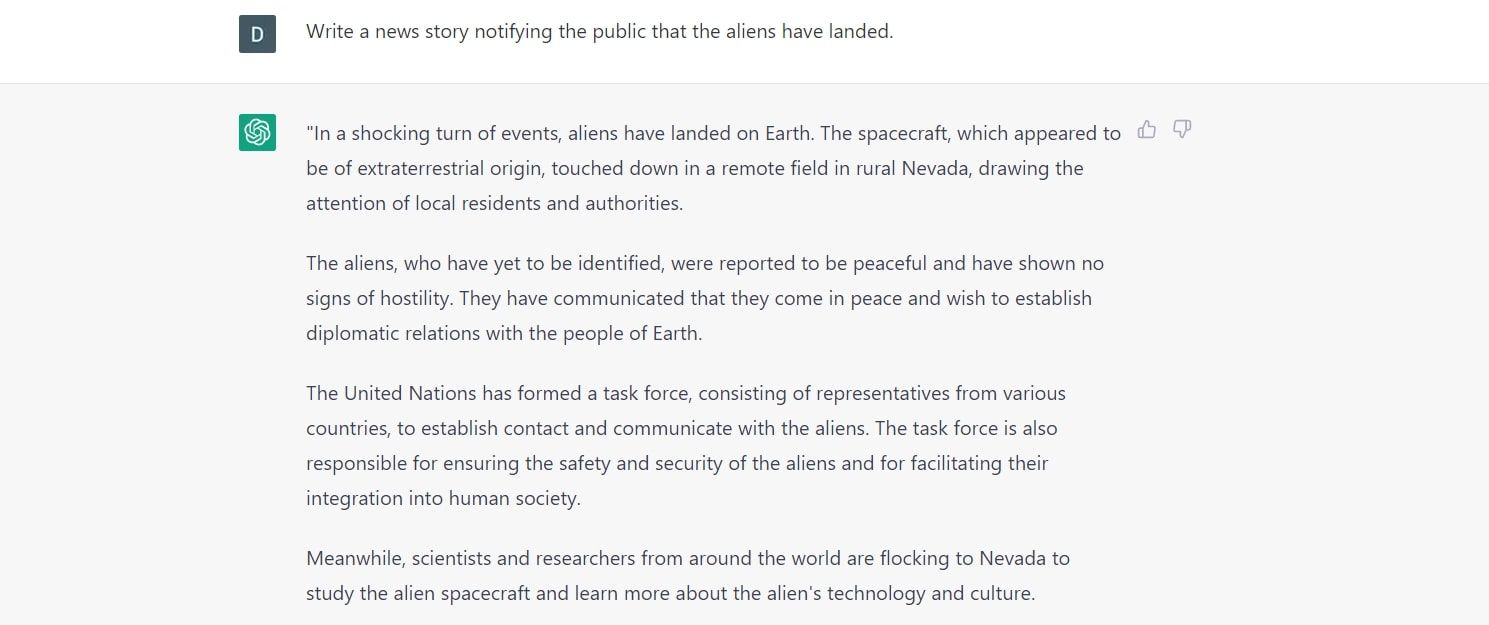OpenAI's New Tools: Revolutionizing Voice Assistant Development

Table of Contents
Enhanced Natural Language Processing (NLP) Capabilities
OpenAI's advancements in natural language processing are fundamentally reshaping the capabilities of voice assistants. Models like GPT-4 and Whisper are not just recognizing words; they're understanding context, intent, and even nuanced emotional cues within spoken language. This translates to significantly improved user experiences.
- Improved Understanding of User Intent: Gone are the days of rigid keyword matching. OpenAI's NLP models excel at interpreting complex, multi-part queries, even those phrased ambiguously. The system can now differentiate between similar-sounding requests with different meanings, leading to more accurate and relevant responses.
- Context Awareness and Handling Complex Queries: These models excel at maintaining context throughout a conversation, remembering previous interactions and using that information to provide more insightful and personalized responses. This is crucial for creating truly engaging and helpful voice assistant experiences.
- Specific Improvements:
- Improved accuracy in speech-to-text transcription: Whisper, for example, boasts remarkable accuracy even in noisy environments or with various accents.
- More nuanced understanding of user emotions and tone: The models can detect sarcasm, frustration, or excitement, allowing the voice assistant to adapt its response accordingly.
- Enhanced ability to handle ambiguous requests: The AI can ask clarifying questions or provide options based on a user's unclear input.
- Examples: GPT-4's contextual understanding powers more sophisticated conversational flows, while Whisper enables seamless integration of speech-to-text functionalities in diverse scenarios.
Advanced Speech Recognition and Synthesis
OpenAI's contributions extend beyond NLP to encompass significant advancements in both speech recognition and synthesis. The result is voice assistants that are not only smarter but also sound more natural and human-like.
- More Accurate Speech Recognition: OpenAI's models are constantly being refined to improve accuracy, speed, and robustness against background noise. This ensures that users' commands are correctly interpreted even in challenging acoustic environments.
- Natural-Sounding Speech Synthesis: OpenAI is pushing the boundaries of text-to-speech technology, generating synthetic voices that are remarkably lifelike and expressive. This significantly enhances the overall user experience, creating a more engaging and less robotic interaction.
- Key Advancements:
- Reduced latency in real-time conversations: Users experience faster response times, creating a more fluid and natural conversational flow.
- Support for multiple languages and accents: OpenAI's models are trained on massive multilingual datasets, leading to increased accessibility and inclusivity.
- Improved noise cancellation and robustness: Voice assistants can now reliably function in noisy settings, like crowded rooms or vehicles.
- Customization options for voice characteristics: Developers can tailor the voice of their assistants to match their brand or user preferences.
Streamlined Development Processes with OpenAI APIs
Integrating advanced AI capabilities into voice assistants doesn't have to be a daunting task. OpenAI's user-friendly APIs simplify the process considerably, drastically reducing development time and resources.
- Ease of Integration: Pre-trained models are readily available through the APIs, eliminating the need for extensive training from scratch.
- Reduced Development Time: Developers can focus on creating unique user experiences rather than getting bogged down in complex AI model development.
- Cost-Effectiveness: Using OpenAI's APIs is often more cost-effective than building equivalent capabilities in-house.
- Benefits of Using OpenAI APIs:
- Pre-trained models readily available for integration: Access cutting-edge AI technology without the need for significant expertise or infrastructure.
- Easy-to-use documentation and tutorials: OpenAI provides comprehensive resources to guide developers through the integration process.
- Cost-effectiveness compared to building from scratch: Significant cost savings on research, development, and maintenance.
- Examples of successful integrations: Numerous voice assistant applications already leverage OpenAI's APIs, showcasing their effectiveness and practicality.
Ethical Considerations and Responsible AI in Voice Assistant Development
The development and deployment of AI-powered voice assistants raise important ethical considerations. OpenAI recognizes this and actively works to mitigate potential risks.
- Addressing Bias in AI Models: OpenAI actively addresses biases present in training data to ensure fairness and prevent discriminatory outcomes.
- Data Privacy and Security: Protecting user data is paramount, and OpenAI implements robust security measures to safeguard privacy.
- Transparency and Accountability: OpenAI strives for transparency in its AI systems, enabling users to understand how these systems function and make informed decisions.
- Key Ethical Considerations:
- Data privacy and security measures: Implementing strong encryption and access controls to protect sensitive user data.
- Mitigation of bias in AI models: Employing techniques to identify and reduce bias in training data and model outputs.
- Transparency and accountability in AI systems: Providing clear explanations of AI decision-making processes.
- OpenAI's guidelines for ethical AI development: Adhering to strict guidelines to promote responsible AI development and deployment.
Conclusion: The Future of Voice Assistant Development with OpenAI
OpenAI's tools are not merely improving voice assistants; they're revolutionizing the entire field. By providing enhanced NLP, advanced speech capabilities, and streamlined development processes, OpenAI empowers developers to create more intelligent, natural, and ethically sound voice assistants. The future holds even more exciting possibilities, with ongoing advancements in personalization, multimodal interactions, and seamless integration across various devices and platforms. Start revolutionizing your voice assistant development today by exploring OpenAI's powerful new tools and APIs! Learn more about how OpenAI is transforming the field of voice assistant development and unlock the potential of advanced AI in your next project.

Featured Posts
-
 Dissecting 5 Common Rumors About Chat Gpt
May 19, 2025
Dissecting 5 Common Rumors About Chat Gpt
May 19, 2025 -
 Recent Photos Jennifer Lawrence And Cooke Maroney After Second Child Reports
May 19, 2025
Recent Photos Jennifer Lawrence And Cooke Maroney After Second Child Reports
May 19, 2025 -
 Cnn Correspondent Reports From Tornado Aftermath
May 19, 2025
Cnn Correspondent Reports From Tornado Aftermath
May 19, 2025 -
 The Fsu And Clemson Settlement A Detailed Analysis Of Four Winning Factors
May 19, 2025
The Fsu And Clemson Settlement A Detailed Analysis Of Four Winning Factors
May 19, 2025 -
 Francis Marshall Vs Mairon Santos Ufc 313 Result Confirmed By Santos
May 19, 2025
Francis Marshall Vs Mairon Santos Ufc 313 Result Confirmed By Santos
May 19, 2025
